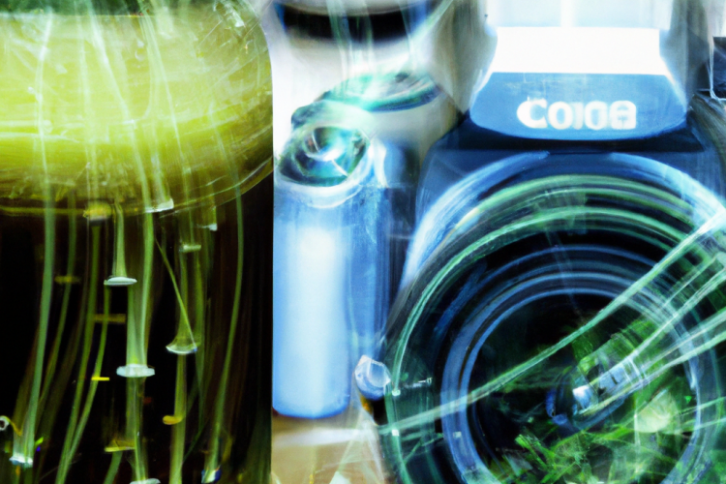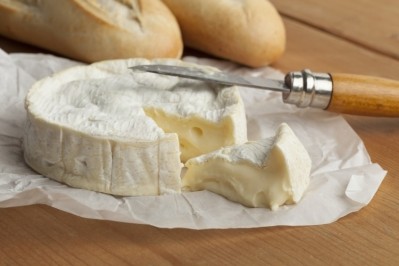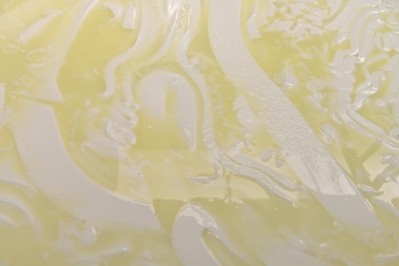AI-powered sensing tech could narrow the cost margin between dairy and dairy alternatives

For manufacturers of precision fermentation-derived ingredients such as non-animal casein or whey, this solution could bring greater control over growth parameters and an ability to detect anomalies during processing. Paired with existing productivity and bioprocess-improvement services offered by Planetary, the solution could bring costs down by up to 30%, we were told.
The novel technology, which is currently in the works, leverages Konica Minolta’s expertise in monitoring and advanced sensing to generate bioprocessing data in real-time. This data is fed to AI and translated into process and control recommendations to optimize the fermentation process.
Industrial-scale fermentation is a focus for Geneva-based Planetary, which was founded in 2021 with the idea to solve a key problem for many start-ups in the sector – scaling-up production without the financial outlay of investing in infrastructure. In addition to this infrastructure, the company offers a range of services through its proprietary BioBlocks platform to help streamline production and minimize costs up and down the value chain; examples include feedstock development, equipment-level innovation, and smart facility design. “We offer process onboarding, optimization, validation, and production from bench to 50,000L scale - with plans to grow this capacity further into larger volumes in the near future,” said Julian Iacovelli, director, business operations, at Planetary. “However, the industry bottlenecks do not lie in a capacity shortage alone. Bioprocess optimization plays a big role in getting products into the market at scale and at cost.”
When it comes to proteins, Iacovelli says that the company has experienced ‘notable demand’ from within the non-animal dairy space. “We are actively working with a range of scale-ups as well as with large multinational CPGs to develop and scale-up their non-animal derived dairy ingredient category,” he said. “Whilst higher value compounds will be the first to market, it's the commodity foods such as dairy proteins, which will drive meaningful change in food systems.”
Konica Minolta – a household name in the camera and printing business – has in recent years developed precision-agriculture solutions, such as this crop monitoring technology that can detect diseases and pests through non-invasive interventions. Monitoring is also at the heart of the company’s partnership with Planetary, but there are differences.
“The joint concept of camera-based sensing solutions and associated bioprocess data AI is novel,” explained Iacovelli. “Through monitoring and sensing technology, we will generate large amounts of data in real-time which will be processed by artificial intelligence and translated into process control recommendations.”
He added that Planetary had been in contact with Konica Minolta ‘for months, working through the preliminary stages of this project after our research team around professor Ian Marison, CSO and co-founder at Planetary, was approached by the innovation team Konica Minolta’. “With Konica Minolta's optics and sensing expertise, and our bioprocess know-how, the two parties are perfectly positioned to bring advancements to this space,” said Iacovelli.
He added that the specific sensing technologies as well as AI-based productivity optimization strategies will be revealed as the collaboration matures and commercializes. “Overall, we estimate a cost reduction potential of up to 30% as a result of these solutions allowing superior bioprocess monitoring and control in real-time.”
Speaking of the current state of the precision fermentation dairy market and its likely development in the coming years, Iacovelli said: “Currently in the bio-based industry as a whole, and specifically in the area of commodity products and compounds - many milk proteins are commodity proteins – costs of goods sold (COGS) are still a margin away from price parity with traditional animal and fossil-based production systems. Novel solutions, such as those we are developing with Konica Minolta, can help to bring production cost down by up to 30% and come closer and closer to price parity.
“These solutions, along with advancements in strain engineering, bioprocess innovations on Planetary's BioBlocks platform, and strategically-designed and located production facilities, will enable market readiness for the bioeconomy and bring products to supermarket shelves.”












